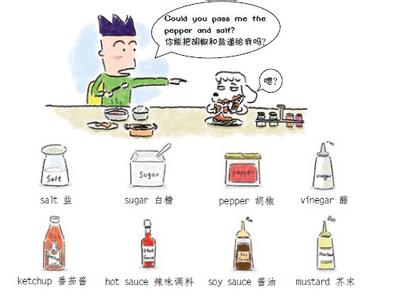In the past, most condiments, such as jams and sauces, were simply stored in the kitchen cupboard.
No one ever seemed to get ill, despite jars of marmalade, mustard and ketchup remaining at room temperature for months on end.
But they now come with warnings to refrigerate immediately after opening.
Microbiologist Dr. Peter Barratt gives his advice that the very same products are best kept in the fridge to slow the growth of potentially harmful micro-organisms and eaten within the stated period.
以前,大多数的调味品,比如果酱和酱汁,通常都是存放在厨房碗柜里。
尽管那些罐装的桔子酱、芥茉以及番茄酱被放在常温的环境里连续几个月,似乎没有人因此而生病。
不过,现在调味品的包装上都增加了“开封后冷藏保存”的提示语。
微生物学家彼得·巴拉特博士建议,这些物品应存放在冰箱里,从而减缓潜在的有害微生物的生长,而且最好在规定的期限内食用。
【讲解】文中的condiment用作名词,解释为“调味品;佐料”,如:Fish sauce is a traditional condiment in coastal areas.(鱼露是沿海地区的传统调味品。),常见的中式调味品有:salt(盐),sugar(糖),vinegar(食醋),sesame oil(麻油);常见的西式调味品有:mint(薄荷),cinnamon(肉桂),curry powder(咖喱粉)等。
文中的stated是动词state的过去分词形式,这里作为形容词,意为“定期的;规定的”,如:Meetings are held at stated times.(会议定期举行。)

 爱华网
爱华网



